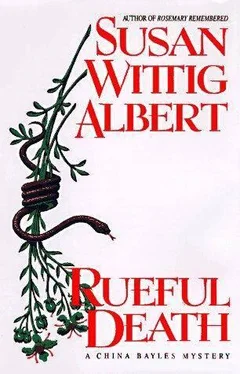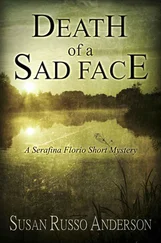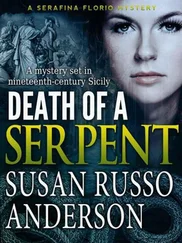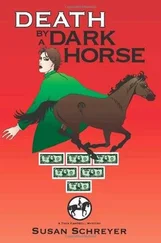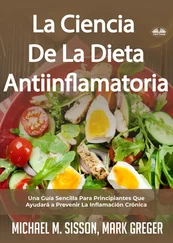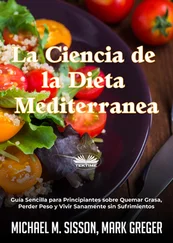Mother seemed to relax a little. "Well," she said, "I'm glad you got this whole unhappy business wrapped up. Oh, by the way, I should tell you that Dwight gave me his notice this morning. He's going to work for the Town-sends."
"I'm not surprised," I said. I paused. "Now that everything's out in the open, Mother, what's going to happen to the community?"
"Reverend Mother and I haven't talked about it yet, but in view of the way things have turned out-I'm thinking of the trust fund, of course-I'm confident that St. Theresa's will be allowed to pursue its mission without any more interference."
"And the sisters who want to leave?"
"They're free to go as soon as they can make arrangements. Olivia, too, of course." She smiled. "She isn't so different from Hilaria, you know. She has the same determination, the same drive. With maturity and experience, I expect she'll do quite well-somewhere else." She looked at me. "Like Tom, we're in your debt, China. Is there something we can offer you, something we can do, to repay you?"
I thought about that. "You might ask Sister Gabriella and her crew for a special prayer for next Sunday," I said. "I understand that the Cowboys are up against the 'Niners."
For readers who are interested in herbs, the following may be helpful.
1. If you're intrigued by St. Theresa's garlic farm and would like to start your own, read Growing Great Garlic, by Ron Engeland (Filaree Productions, Rt. 1, Box 162, Okanogan, WA 98840). If you're hungry for St. T's simple, earthy way of life, A Garlic Testament: Seasons on a Small New Mexico Farm, by Stanley Crawford, HarperCollins, 1992, is delightful soul food. Or if you're simply hungry, try Glorious Garlic: A Cookbook, by Charlene A. Braida.
2. You'll find a discussion of foxglove (definitely not an herb to experiment with!), in Mrs. M. Grieve's A Modern Herbal, which actually isn't all that modern. Dover Publications, 31 E. 2nd St., Mineola, NY 11501, has republished the original 1931 edition, unabridged. See pages 323-326. Steven Foster includes more up-to-date information on the plant's phytomedicinal qualities in Herbal Renaissance (1984, Peregrine Smith Books, Layton, UT 84041).
3. The biblical plants Mother Winifred has placed in her garden are only a few of those she might have included. Two books on the subject are Gardening with Biblical Plants, by W. James (Nelson-Hall, 1983), and Bible Plants for American Gardens, by Eleanor Anthony King (1942, republished by Dover). While I was planning Rueful Death, The Herb Quarterly published a fascinating article (Fall, 1994, pp. 26-31) about the construction of the Rodef Sha-
lorn Biblical Garden in Pittsburgh, revealing some of the hidden mysteries of garden plotting.
4. My thanks go to Madalene Hill, Texas herbalist and past president of the Herb Society of America, for the reminder that rue is a powerful rubefacient-that it has the ability to redden skin and even to blister. In Southern Herb Growing (Shearer Publishing, 1987, p. 113), Madalene and her daughter Gwen Barclay relate this interesting anecdote, contributed by Mary Jo Modica, from the University of Alabama Arboretum:
Several volunteers and I were working in the herb garden in shorts on a very sunny day… We were weeding near a large rue that was in flower and fruit. Two days later we all had second-degree burns on our legs and arms… After a great deal of research, we discovered the rubefacient power of rue is not to be taken lightly. Evidently, everywhere the glandular flowers and fruits touched us, the oils they released magnified the rays of the sun, resulting in very painful burns.
5. Another older book, Plants of the Bible, by Harold N. and Alma L. Moldenke (1952, republished by Dover), gave me much rue lore, including the fascinating reference to the superstition about guns. From Mrs. Grieve's A Modern Herbal I also learned that rue-water sprinkled here and there repels fleas, along with other fascinating oddities. (For instance, in Pliny's day, rue was thought to be good for the eyes, so painters ate quantities of it.) I also drew from Eleanour Sinclair Rohde's A Garden of Herbs (1936, republished by Dover). She offers this puckery, "rue-full" recipe, from The Good Housewife's Jewell, 1585.
Preventive Against the Plague A handful each of rue, sage, sweet-briar and elder. Bruise and strain with a quart of white wine, and put thereto a little ginger and a spoonful of the best treacle, and drink thereof morning and evening.
6. Rue is said to derive its name from the Greek word reuo, to set free, which may be a guarded reference to its virtue as an abortifacient. Etymologically speaking, the word has nothing to do with the English verb "to rue" (to regret, to wish one had acted otherwise), which comes from the Anglo-Saxon noun hreow, regret. But these two homonyms were inevitably associated, linking the plant rue with the idea of ruing or regretting, making it a "sour herb of grace." The archaic English noun "rath," meaning compassion and mercy, along with the modern English adjective ' 'ruthless'' also derive from hreow. Thus, Shakespeare finds "ruth" and "rue" synonymous: "rue, even for ruth, shall shortly here be seen…" These mysterious inter-weavings of symbol and meaning are too tempting for the novelist to ignore.
7- Susan and Bill Albert publish an occasional newsletter called Partners in Crime, containing information about their books. If you would like to be on the mailing list, send a one-time subscription fee of $3 to Partners in Crime, PO Box 1616, Bertram TX 78605-1616. You may also visit the Partners in Crime Web site at http.//www . mysterypartners. com.
About Susan Wittig Albert

Susan Wittig Albert is a mystery writer from Vermilion County, Illinois. She currently resides in Bertram, Texas, near Austin, with her husband, Bill Albert.
***

